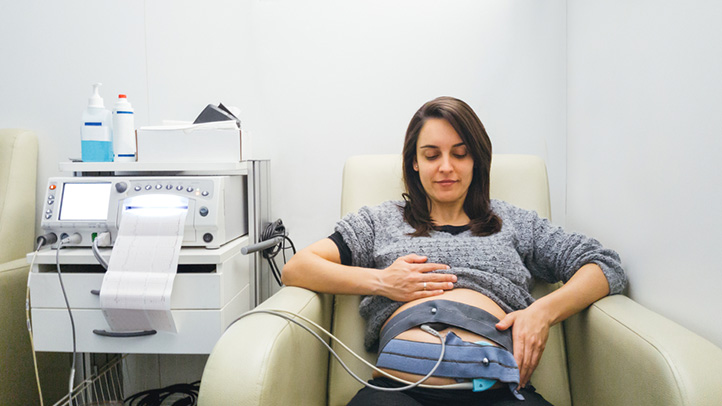Contents:
- Medical Video: Prenatal screening, fetal testing, and other tests during pregnancy
- What is a nonstress test for pregnant women?
- Who should do this test?
- What is the procedure for doing this test?
- Understand the results of nonstress tests for pregnant women
Medical Video: Prenatal screening, fetal testing, and other tests during pregnancy
Nonstress test is the most common test for pregnant women to monitor movements, heart rate, and contractions in the womb. This test is done when the pregnancy is nearing the date of birth or if the mother experiences it complications during pregnancy. Read more about the sundries of nonstress tests in this article.
What is a nonstress test for pregnant women?
Nonstress test (NST) is a simple and painless procedure performed during pregnancy to see the baby's development. During the test, the doctor will monitor your baby's heart rate while resting and moving. Just like the human heartbeat in general when it is actively moving, the baby's heart rate must also rise as he moves or kicks in your womb.
NST ensures that babies in the womb are in good health and have an adequate supply of oxygen.
This test procedure is very safe for you and your baby. Doctors will not use drugs to make your baby move. So, a nonstress test will record all your baby's activities naturally while in the womb.
Later, there may or may not be any movement of your baby during the test. However, this test does not aim to examine the baby's movements, but rather evaluates his heart rate reactivity.
Who should do this test?
NST is usually done if your pregnancy has exceeded the time of birth, or in one / two months before the date of birth if your pregnancy is at high risk. But, there are also several other conditions that require a pregnant woman to routinely do an NST test, namely:
- If you have gestational hypertension.
- Your baby looks small or doesn't grow well.
- Babies are less active than usual.
- You have too much or too little amniotic fluid.
- You have to do the procedure external cephalic version (change the position of breech baby), third trimester amniocentesis (ensuring that the baby's lungs are mature enough before birth or overcoming uterine infection).
- Pregnancy has exceeded the birth limit.
- Ever have history of miscarriage.
- Your baby has been diagnosed by a team of doctors with abnormalities or birth defects so that intensive monitoring needs to be done during pregnancy.
- Have medical problems that can endanger your baby's health.
What is the procedure for doing this test?
You will sit, lie down, or in a sloping position. The point is your comfort position, with two belts around the abdomen. One belt serves to measure the baby's heart rate, while the other one to measure contractions.
When you feel a baby's movement like a kick, you can press the button so that the doctor can see the baby's heart rate changing as he moves.
However, if during the test the baby does not move, chances are he is sleeping. If so, the doctor will try to wake your baby by ringing the bell, moving the stomach or by using an acoustic stimulator so he can move. This test usually takes around 20 to 60 minutes.
Understand the results of nonstress tests for pregnant women
After the examination, the doctor will evaluate and diagnose the results. If your baby's heart beats fast when he moves for at least 15 seconds on two separate occasions over a span of 20 minutes, the results are normal or "reactive."
These normal results indicate that your baby is fine when the test is taking place. Usually the doctor will recommend running another test every week (or more often) until your baby is born.
Whereas if your baby's heart doesn't beat faster when he moves or your baby doesn't move after about 90 minutes, the results of this test are "not reacting". Non-reactive test results do not always indicate something is wrong. The reason is that it only shows if the test you are taking provides information that is not accurate enough, so you need to retest another hour later, or do another test such as biophysical profile and contraction stress test.
But, non-reactive results from the tests you have done can also indicate that your baby is not getting enough oxygen or having problems with the placenta. If the doctor diagnoses your baby not moving well in the womb, he may decide to inducing labor.













